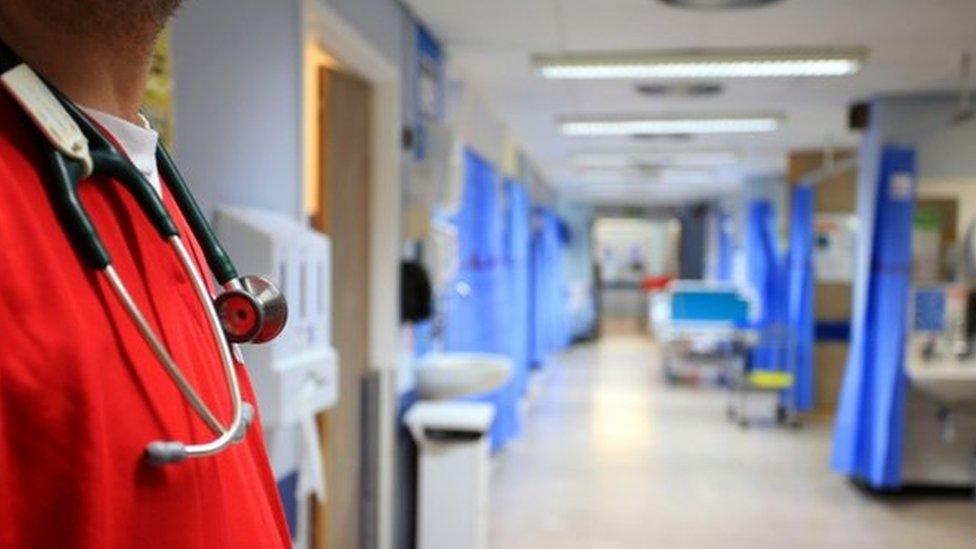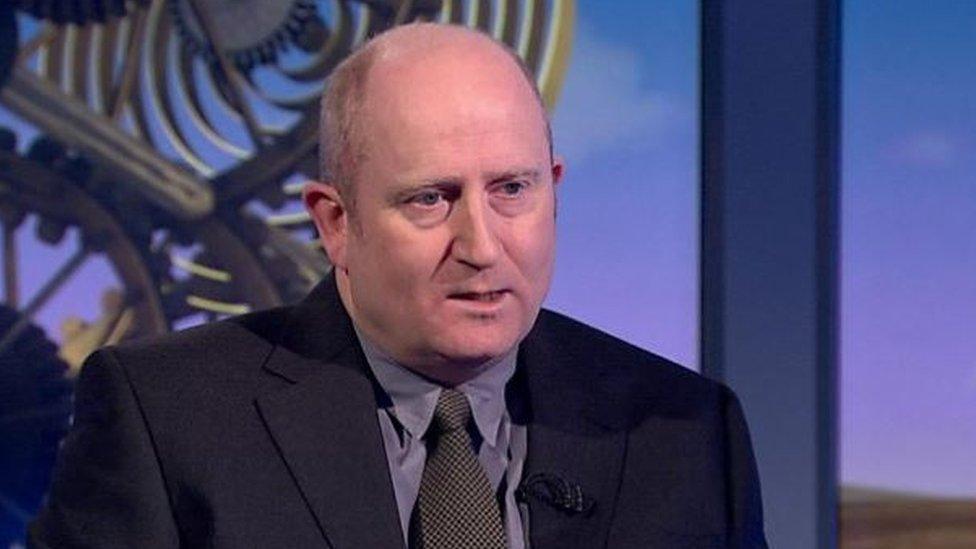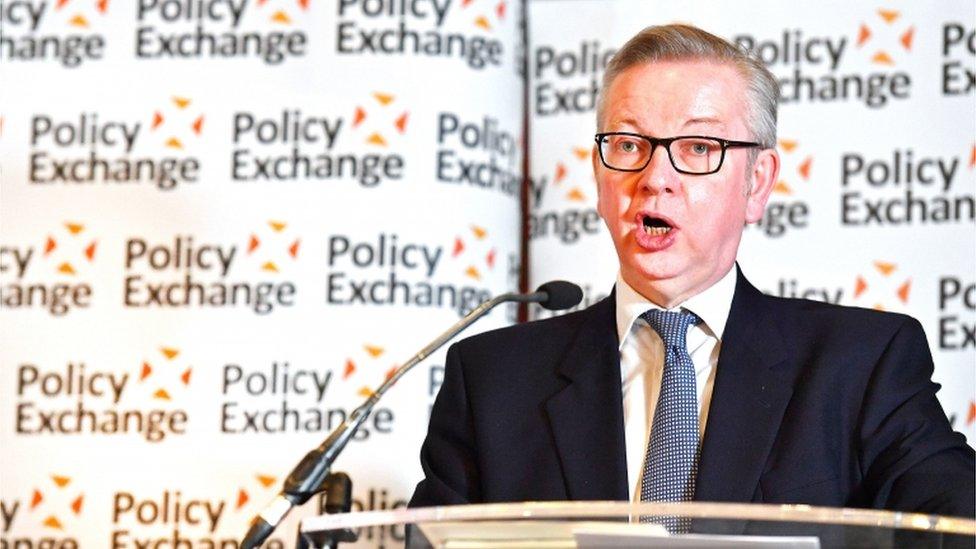Doctors call for post-Brexit immigration 'clarity'
- Published

Doctors' leaders have warned that "virtually no progress" has been made to allow medical professionals to come and work in Scotland after Brexit.
Dr Peter Bennie of BMA Scotland said there was "absolutely no clarity" on future plans for immigration.
There are currently more than 1,000 EU registered doctors working across Scotland.
The UK government said the post-Brexit immigration system would "welcome the brightest and best".
Cabinet secretary and prominent Brexiteer Michael Gove claimed on Monday that leaving the EU had made the UK "more welcoming to new arrivals".
'Deeply concerning'
Dr Bennie, who recently said services were "under pressure like never before", is at the European Parliament in Brussels for talks on the future of the European medical workforce.
He said current rules allowed doctors to "practice freely" across EU member states, but said not enough had been done to plan for what happens after the UK leaves.
An Immigration Bill was promised in last year's Queen's Speech, but proposals have yet to be published, despite originally being expected in autumn 2017.
Dr Bennie said: "It is deeply concerning that we have seen virtually no progress on a solution that will allow medical professionals to come to Scotland to work after Brexit.

Dr Peter Bennie said immigration was an "important supply line" of health service staff
"While we have seen some reassurance for doctors already in Scotland and those who arrive during the transition period, there is absolutely no clarity on what immigration arrangements may be in place once we have left the European Union, and the implications that could have for doctors."
He added: "The benefits of allowing doctors to practice freely across the EU are manifold. Not least among them is the substantial contribution European doctors make to delivering care in our NHS.
"At a time when our workforce is already stretched to its limits, it is unthinkable that we could simply stand by and lose this important supply line of doctors for our hospitals and communities."
Dr Bennie said it was equally important to make sure medical qualifications were still recognised across the continent, warning that "we risk losing" medical students from EU countries who have trained in Scotland.
What does the UK government say?
A spokesman said: "We deeply value the contribution of all EU citizens working in our health and care sector, they are vital to ensuring the effective delivery of services.
"After we leave the EU, we will have in place an immigration system which works in the best interests of the whole of the UK, including Scotland.
"Freedom of movement will end and we will be creating an immigration system that delivers control over who comes to the UK, but that welcomes the brightest and best who want to work hard and contribute."

Michael Gove argued that Brexit had made the UK "more welcoming" to immigration
Mr Gove, the UK government's environment secretary, told a conference on Monday that Brexit could make the country more welcoming to migrants.
He said: "Britain has become more welcoming to migration since the Brexit vote, as opinion research has confirmed.
"The act of taking back control has allowed British citizens to show that they can be more welcoming to new arrivals if allowed to be rather than required to be."
What are Scottish politicians saying?
Scottish Health Secretary Shona Robison said BMA Scotland was "right to raise the huge risks to our NHS that Brexit poses".
She said: "The only way to protect staff and patients is to stay in the EU, and failing that, retain our membership of the single market and customs union.
"Without that, we could see diminished cross-border recognition of qualifications, slower access to new research or medicines and fewer rights for Scottish patients to have treatment in the EU."
Ms Robison added that immigration powers should be devolved to Holyrood to allow Scottish ministers to develop a "tailored migration system".
Scottish Labour also praised Dr Bennie's intervention, calling for "a Brexit deal that allows for fair immigration".
Health spokesman Anas Sarwar said the new system should guarantee the rights and status of existing European Economic Area (EEA) nationals and also "ensure our NHS and care sector can recruit the staff needed to care for our sick and elderly now and in the future".
And Lib Dem health spokesman Alex Cole-Hamilton said it would be a "medical catastrophe" if doctors and nurses were put off working in the UK as a result of Brexit.